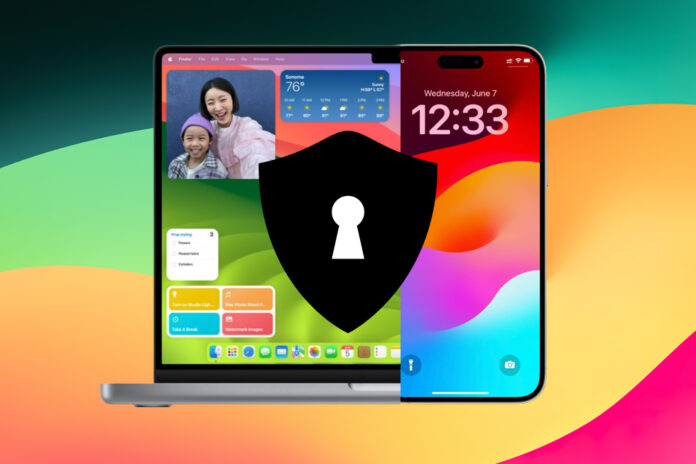
Today, we’re exploring the latest security updates from Apple: macOS Sonoma 14.1.2 and iOS 17.1.2. These updates are critical in maintaining the robustness and integrity of Apple devices. Let’s delve into the specifics of these updates, their historical context, and their reception in the Apple community.
Table of Contents
iOS 17.1.2: A Critical Shield
Apple’s iOS 17.1.2 update, a minor yet vital update, addresses key vulnerabilities in WebKit, the engine behind Safari:
- CVE-2023-42916: This vulnerability pertains to an out-of-bounds read in WebKit that could disclose sensitive information when processing web content. Apple acknowledges that this issue might have been exploited in versions of iOS before 16.7.1.
- CVE-2023-42917: This addresses a memory corruption issue in WebKit, potentially leading to arbitrary code execution. Apple is aware of reports that this vulnerability may have been exploited against older iOS versions.
These fixes are crucial, especially considering the potential for exploitation in versions prior to iOS 16.7.1.
macOS Sonoma 14.1.2: Targeted Security Enhancements
macOS Sonoma 14.1.2, a follow-up to the 14.1.1 update, includes significant bug fixes and security updates. Interestingly, this update is not universal; it is split into two different BuildVersions (23B92 & 23B2091), with one version for M2 Macs and below, and another specifically for M3 Macs. This targeted approach indicates Apple’s commitment to tailoring security measures to different hardware needs.
Historical Context of Apple’s Security Vigilance
Throughout its history, Apple has regularly rolled out security updates to protect its ecosystem. Some notable examples include:
- iOS 12.4.1 (August 2019): This update addressed a significant vulnerability that had been inadvertently reintroduced in iOS 12.4, which allowed for the execution of arbitrary code with system privileges.
- macOS Mojave 10.14.6 Supplemental Update (October 2019): This supplemental update resolved a security flaw that could allow a malicious application to access restricted files.
- iOS 13.5.1 (June 2020): Released shortly after iOS 13.5, this update patched a vulnerability exploited by the unc0ver jailbreak tool, which allowed users to jailbreak most iPhone models.
- macOS Big Sur 11.3.1 (May 2021): This update fixed two vulnerabilities, including one that could allow a maliciously crafted document to execute code using kernel privileges.
These updates reflect Apple’s commitment to responding swiftly to security threats, ensuring that users enjoy a safe and secure experience across all devices.
User Reactions
The reception of these updates in the Apple community has been mixed. Some users have expressed frustrations with previous stability issues in macOS Sonoma and look forward to this update bringing improvements. In contrast, the iOS updates are generally well-received, with users acknowledging the importance of security patches and appreciating the convenience of overnight updates.
How to Update Your Apple Devices
- Backup: Always start by backing up your data.
- Update through Official Channels: For iOS, go to Settings > General > Software Update. For macOS, access the Software Update section in System Settings.
- Stay Informed: Regularly check Apple’s official channels for the latest updates and security advisories.
Conclusion: A Continuing Legacy of Security
The release of macOS Sonoma 14.1.2 and iOS 17.1.2 is another chapter in Apple’s ongoing effort to fortify its devices against evolving security threats. While these updates may seem routine, they are integral to the security and functionality of Apple devices. As part of the Apple community, staying updated and informed is key to enjoying a secure digital experience.
Stay tuned for more updates, and remember, safe and secure Apple-ing!






